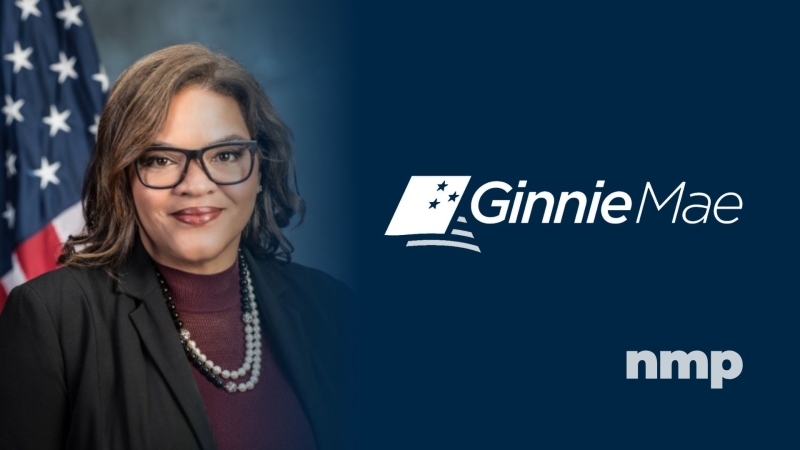

Lack of funds, plan to cease loan servicing among issues cited.
A U.S. Bankruptcy Court trustee and several creditors have filed objections to a Chapter 11 bankruptcy liquidation plan proposed by Reverse Mortgage Investment Trust Inc. (RMIT).
One of the creditors objecting to the plan says RMIT lacks the money needed to pay off its administrative and priority claims, while another raises questions about the company’s proposal to abandon servicing its mortgages “without providing for any transition to a successor servicer.”
RMIT is the parent of Reverse Mortgage Funding LLC (RMF), a Bloomfield, N.J.-based reverse mortgage lender. It filed a petition for Chapter 11 bankruptcy on Nov. 30 in U.S. Bankruptcy Court for the District of Delaware. Under Chapter 11, a business may continue to operate under court supervision while it reorganizes its finances.
Watch The Interest
RMF is a wholly owned subsidiary of RMIT, a specialty finance company in the reverse mortgage sector. RMIT is an affiliate of Starwood Capital Group, a global private investment firm and an innovator in non-agency mortgages.
On March 22, RMIT filed an amended joint Chapter 11 plan of liquidation to resolve the “outstanding claims against, and equity interests in,” RMIT, RMF, and their affiliates. The plan proposes “liquidating the estates, free and clear of all liens, claims, charges, or other encumbrances.”
It adds that, following the liquidation, RMIT and its affiliates “may operate their business and use, acquire, or dispose of property, and compromise or settle any claims, interests, avoidance actions, or causes of action.”
The plan states it will fund distributions under the liquidation plan using “(a) cash in the Plan Reserve Account, (b) cash in the Wind-Down Account, and any other revenues and proceeds of all assets of the debtors… .”
Five Parties Object
Creditors were given until April 20 to file objections to the plan, and five were filed, including one from Texas Capital Bank N.A. (TCB) that questions the financial soundness of the plan.
TCB’s objection notes that it was a primary warehouse lender to RMF before its Chapter 11 petition was filed, providing funding “of not less than” $387 million for originations and buyouts, among other financing. The bank also provided debtor-in-possession (DIP) financing after the bankruptcy filing, “in the aggregate amount [of] not less than” $28.69 million.
TCB’s objection continues, “As administrative claims are required to be paid in cash and in full on the effective date of a plan, a debtor’s ability or inability to pay its administrative claims directly affects the finding of whether a plan is feasible and confirmable. … Unfortunately, in this case there are insufficient unencumbered assets to pay the allowed administrative claims in full … .”
It adds, “Without TCB’s consent to permit junior creditors to be paid from the proceeds of TCB’s DIP Collateral and the TCB Prepetition Collateral, the debtors also lack the ability to satisfy their other administrative claims, priority tax claims, and other priority claims.”
A monthly operating report filed April 21 lists total assets for RMF of $2.46 billion, including $8.9 million in unrestricted cash, but lists RMIT’s assets as a deficit of $9.05 million. It lists total liabilities for RMF of $2.58 billion and for RMIT of $151 million.
Abandons Servicing
In addition to TCB’s objections, the four other parties that filed objections to the Chapter 11 liquidation plan were the U.S. Trustee for Regions 3 and 9; the official committee of unsecured creditors; Leadenhall Capital Partners LLC and Leadenhall Life Insurance Linked Investments Fund Plc; and U.S. Bank N.A. and U.S. BankTrust Co. N.A.
The objection filed by Leadenhall raises concerns similar to those raised by TCB, claiming that RMIT and RMF do not have the funds necessary to meet the plan’s financial obligations.
U.S. Bank, meanwhile, raises several objections to the proposed liquidation plan, including that RMIT and RMF plan to walk away from servicing the 116,000 loans on its ledger.
According to U.S. Bank’s complaint, the liquidation plan “appears to contemplate the imminent rejection of the servicing agreements and the cessation of all loan servicing activities relating to the trusts, without providing for any transition to a successor servicer. In the event that a successor servicer is not appointed prior to confirmation of the plan, the Trusts, as well as the customers associated with the underlying reverse mortgages held in those the trusts, would inevitably suffer significant damages from any interim lull in servicing, or a disorderly transition to a new successor servicer.”
It adds, “Countless customers, many of whom are retirees who rely on the regular funds from their reverse mortgages to pay their monthly bills, would suffer serious consequences.”
The bank notes that the plan to reject the servicing agreements violates the federal Real Estate Settlement Procedures Act (RESPA) and its implementing regulation, Regulation X.
“RMF’s proposed abandonment of its servicing obligations under the plan is a clear violation of both of these regulations,” the complaint states.
The sudden cessation of servicing would also violate the Consumer Financial Protection Act, the bank states, as well as violate the U.S. Department of Housing and Urban Development (HUD) guidelines applicable to certain HECM (home equity conversion mortgage) loans currently serviced by RMF.
Lack Of Consent
The objection submitted by Bankruptcy Court Trustee Andrew R. Vara states the plan should not be confirmed “in its present form because it extracts non-consensual third-party releases, for no consideration, from a multitude of non-debtor parties … merely because such parties are connected and/or related to certain releasing parties.”
It continues, “Not only has no consent been obtained from such related parties, but they would not have received any notice that their direct claims against non-debtors would be extinguished under the plan…”
Vara’s objection also states the plan should not be confirmed because “it does not include appropriate provisions regarding obligations to file post-confirmation reports, or to pay statutory fees …, and restricts the source of the funds that may be used to make such statutory payments.”
He lists seven other objections, some related to the third-party release issue.
The committee of unsecured creditors states in its objection that it has “engaged in extensive discussions” with the debtors and “have actively negotiated to ensure that all parties’ rights are properly accounted for both prior to and after confirmation of the plan.”
The objection continues, “While negotiations with the debtors have been productive, various concerns raised by the committee regarding the plan remain unresolved to date, including the structure of the documents related to the RMF Reorganization Transaction and the Plan Administrator Agreement. Among other things, the committee is concerned about the scope of the Plan Administrator’s authority with lack of sufficient oversight by the Plan Advisory Committee.”
The Bankruptcy Court judge has yet to rule on the plan or the objections to it.




